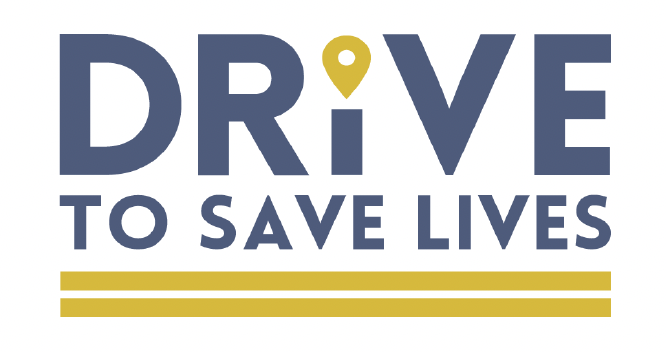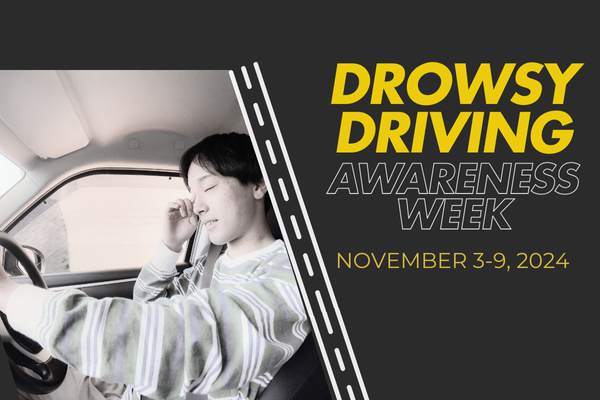Every year, Drowsy Driving Awareness Week (November 3-9, 2024) serves as a vital reminder of the dangers associated with driving while fatigued. This post focuses on the importance of staying alert behind the wheel and offers practical tips to complement the messages of our speakers with a focus on distracted driving.
The Dangers of Drowsy Driving
Drowsy driving is a significant but often overlooked hazard. According to the National Highway Traffic Safety Administration (NHTSA), drowsy driving is responsible for thousands of crashes, injuries, and fatalities each year. Each year, drowsy driving results in approximately 328,000 crashes, 109,000 injuries, and around 6,400 fatalities in the United States. General awareness of the issue is also concerning, as nearly 24% of drivers admit to driving while so fatigued that they struggled to keep their eyes open at least once in the past 30 days. Comparatively, driving after more than 20 hours without sleep is estimated to be as dangerous as driving with a blood alcohol concentration (BAC) of 0.08%.
Why High School Students Are at Risk
High school students are particularly vulnerable to drowsy driving due to several factors. Early school start times often lead to insufficient sleep, as many high schools begin classes early in the morning. Balancing busy schedules that include homework, sports, and social activities further cuts into valuable sleep time. Additionally, biological changes in teenagers cause natural sleep pattern shifts, making it harder for them to fall asleep early. These combined factors significantly increase the risk of drowsy driving among high school students.
Sleep deprivation significantly impairs reaction times, which can have serious consequences for students who are often behind the wheel. When you’re sleep-deprived, your brain’s ability to process information slows down, meaning it takes longer to interpret what you see and hear, and decide how to respond. Studies have shown that reaction times increase as sleep debt accumulates, with participants who slept only five hours per night for a week having significantly slower reaction times by the end of the week. Lack of sleep also reduces overall alertness, making it harder to stay focused and react quickly, which is particularly dangerous when driving. Additionally, sleep deprivation affects the prefrontal cortex, impairing judgment and decision-making processes.
Pulse on Prevention for Educators
Teachers play a crucial role in reminding students of the importance of sleep and its impact on their overall well-being, encouraging healthy habits, and promoting safe driving habits among students. Incorporating lessons on the dangers of drowsy driving into health or driver’s education classes can educate students effectively.
Drowsy Driving Awareness Week is an excellent opportunity to educate high school students and teachers about the risks of driving while fatigued. By prioritizing sleep and adopting safe driving practices, we can help reduce the number of drowsy driving incidents and keep our roads safer for everyone. Feel free to reach out to us if you are interested in bringing in one of our distracted driving speakers for your next event.
Stay alert, stay safe, and make sleep a priority!
Feel free to share this post with your school community to spread awareness and encourage safe driving habits.

